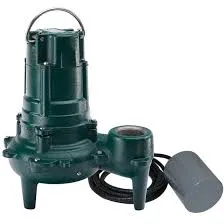Punjabi
- Afrikaans
- Albanian
- Amharic
- Arabic
- Armenian
- Azerbaijani
- Basque
- Belarusian
- Bengali
- Bosnian
- Bulgarian
- Catalan
- Cebuano
- Corsican
- Croatian
- Czech
- Danish
- Dutch
- English
- Esperanto
- Estonian
- Finnish
- French
- Frisian
- Galician
- Georgian
- German
- Greek
- Gujarati
- Haitian Creole
- hausa
- hawaiian
- Hebrew
- Hindi
- Miao
- Hungarian
- Icelandic
- igbo
- Indonesian
- irish
- Italian
- Japanese
- Javanese
- Kannada
- kazakh
- Khmer
- Rwandese
- Korean
- Kurdish
- Kyrgyz
- Lao
- Latin
- Latvian
- Lithuanian
- Luxembourgish
- Macedonian
- Malgashi
- Malay
- Malayalam
- Maltese
- Maori
- Marathi
- Mongolian
- Myanmar
- Nepali
- Norwegian
- Norwegian
- Occitan
- Pashto
- Persian
- Polish
- Portuguese
- Punjabi
- Romanian
- Russian
- Samoan
- Scottish Gaelic
- Serbian
- Sesotho
- Shona
- Sindhi
- Sinhala
- Slovak
- Slovenian
- Somali
- Spanish
- Sundanese
- Swahili
- Swedish
- Tagalog
- Tajik
- Tamil
- Tatar
- Telugu
- Thai
- Turkish
- Turkmen
- Ukrainian
- Urdu
- Uighur
- Uzbek
- Vietnamese
- Welsh
- Bantu
- Yiddish
- Yoruba
- Zulu
Telephone: +86 13120555503
Email: frank@cypump.com
ਸਤੰ. . 25, 2024 21:17 Back to list
basement sewer ejector pump
Understanding Basement Sewer Ejector Pumps A Comprehensive Guide
In the realm of home plumbing, few systems are as vital yet underappreciated as the basement sewer ejector pump. This essential device plays a crucial role in managing wastewater in homes that have below-grade basements or are located in areas where gravity drainage is not feasible. In this article, we'll explore what a sewer ejector pump is, why it's important, how it works, and what homeowners need to consider for maintenance and installation.
What is a Basement Sewer Ejector Pump?
A basement sewer ejector pump is a type of pump designed to lift wastewater from lower levels of a home to the plumbing system's higher elevations where gravity can carry it away. Unlike traditional pumps that rely on gravity, ejector pumps are specifically engineered to handle solid waste and other particulates in addition to liquid waste. This makes them particularly indispensable for homes equipped with bathrooms, laundry rooms, or kitchens situated below the main sewer line.
Why is a Sewer Ejector Pump Important?
For many homeowners, particularly those with finished basements or lower-level living spaces, a sewer ejector pump is essential for proper sanitation. Without this equipment, gravity would prevent wastewater from being effectively drained, leading to potential backups and overflow. This not only poses health risks due to the presence of raw sewage but can also result in severe water damage, costly repairs, and the degradation of living space.
Furthermore, homes located in areas with high water tables or poorly graded yards can experience issues with drainage. Ejector pumps ensure that wastewater is expelled efficiently, thus protecting both the home's integrity and its occupants' health.
How Does a Sewer Ejector Pump Work?
The operation of a sewer ejector pump is straightforward yet ingenious. The pump is typically housed in a sealed basin, often elevated to help manage overflow. When wastewater flows into the basin—either from sinks, toilets, or laundry appliances—float switches within the basin monitor the water level. Once it reaches a certain height, the float switch activates the pump.
basement sewer ejector pump

The pump then begins to operate, grinding any solid waste into smaller particles and forcing the mixture through a discharge pipe that leads to the home's main sewer line. Once the wastewater has been expelled, the float switch deactivates the pump, allowing it to reset until the next cycle.
Installation Considerations
Installing a basement sewer ejector pump requires careful planning and consideration. Homeowners should consult with plumbing professionals to assess their specific needs and ensure compliance with local building codes. Factors to consider include the pump size, horsepower, and the capacity to handle expected wastewater flow.
It is also vital to think about the location of the pump. Ideally, it should be placed in a way that minimizes the pipe length to the main sewer line while still allowing for easy accessibility for maintenance.
Maintenance of Sewer Ejector Pumps
Proper maintenance of sewer ejector pumps is crucial to ensure their longevity and efficiency. Homeowners should routinely inspect the system for signs of wear, leaks, or unusual noises during operation. Additionally, it's advisable to have a professional plumber conduct regular inspections and maintenance, cleaning the basin and ensuring that the pump's components are functioning correctly.
Including a backup power source, such as a battery backup system, is also an important consideration. In the event of power outages, this can prevent potential sewage backups and the associated health risks.
Conclusion
A basement sewer ejector pump is an essential component in maintaining a safe and functional plumbing system for homes with below-grade drainage. Understanding its importance, functionality, and maintenance needs will help homeowners ensure that their ejector pumps operate efficiently for years to come, safeguarding their home from the potential disaster of sewage backup. Making informed choices about installation and upkeep will not only enhance the plumbing system's reliability but also protect the overall integrity and value of the home.
-
Heavy-Duty Mining Sludge Pumps - Wear-Resistant Slurry Handling
NewsAug.02,2025
-
Horizontal Split Case Pump with GPT-4 Turbo | High Efficiency
NewsAug.01,2025
-
ISG Series Pipeline Pump - Chi Yuan Pumps | High Efficiency, Durable Design
NewsAug.01,2025
-
Advanced Flue Gas Desulfurization Pump with GPT-4 Turbo | Durable & Efficient
NewsJul.31,2025
-
ISG Series Vertical Pipeline Pump - Chi Yuan Pumps | Advanced Hydraulic Design&Durable Construction
NewsJul.31,2025
-
ISG Series Vertical Pipeline Pump - Chi Yuan Pumps | Energy Efficient & Low Noise
NewsJul.31,2025










